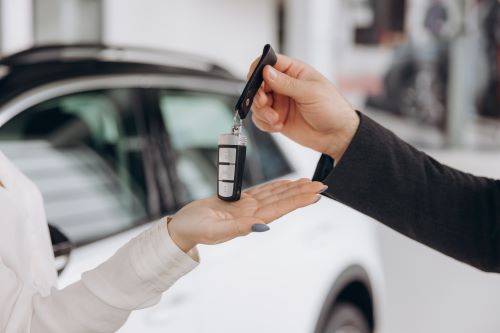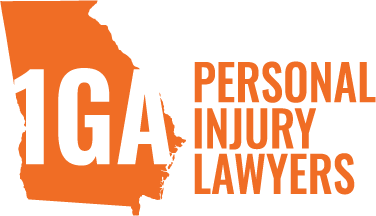Helmet Laws and Their Role in Georgia Motorcycle Accident Claims
We are 1Georgia Personal Injury Lawyers, a Georgia-based firm devoted to representing injured motorcyclists and other accident victims. We bring decades of collective experience in personal injury, auto and motorcycle accident law across the state. From our offices in Alpharetta, Augusta, Columbus, and other locations, we serve clients throughout Georgia. We operate on a contingency fee basis, so you pay nothing upfront. We take pride in guiding clients through each step, gathering evidence, negotiating with insurers, and litigating when necessary.
Helmet laws play a critical role in protecting motorcycle riders and shaping accident claims in Georgia. Every year, riders face serious risks on the road, and wearing a helmet can mean the difference between minor injuries and life-threatening trauma. Georgia’s universal helmet law sets clear standards for motorcycle operators and passengers, reinforcing the importance of protective headgear for public safety. Understanding how these helmet laws affect both safety and legal rights helps riders protect themselves and strengthen their position in a motorcycle accident claim.
In this blog, we explain how Georgia’s helmet laws affect motorcycle safety and accident claims, and why working with an experienced Fayetteville motorcycle accident attorney is essential for protecting your rights after a crash.
Georgia’s Mandatory Helmet Law
Georgia enforces one of the most comprehensive motorcycle helmet laws in the United States. The law exists to protect motorcycle operators and passengers from severe head injuries and reduce fatalities on public roads.
Legal Requirement Under Georgia Law
Under O.C.G.A. § 40-6-315, all motorcycle riders and passengers are required to wear helmets that meet safety standards set by the Georgia Commissioner of Public Safety. This mandatory helmet law applies to all motorcycle operators, motorcycle passengers, and motor-driven cycles on public roads and highways. The statute makes it unlawful for any motorcycle rider to operate or ride without a helmet approved for motorcycle safety.
Approved Helmet Standards
Approved motorcycle helmets must meet safety guidelines from the American National Standards Institute (ANSI) or the Consumer Product Safety Commission (CPSC). Helmets should also have a secure chin strap and proper protective headgear design to ensure stability during a crash. Riders are encouraged to use helmets with face shields or safety glasses that provide eye protection approved under Georgia regulations.
Scope and Coverage of the Law
The universal helmet law in Georgia covers all riders, regardless of age or experience. Unlike states that limit helmet requirements to young riders or novice riders, Georgia law applies to everyone operating or riding on a motorcycle. The rule also extends to motor-driven cycles and mopeds that travel on highways. Exceptions apply only to enclosed motor vehicles equipped with windshields and seat belts.
Connection to Public Safety
The purpose of Georgia’s helmet legislation is to protect motorcycle riders from serious head injuries and to promote highway safety. Studies by the Motorcycle Safety Foundation show that helmeted riders have a much lower risk of death in a motorcycle accident. Georgia’s strict enforcement reflects its commitment to public safety and motor vehicle accident prevention.
Importance of Compliance
Wearing an approved helmet is more than a legal obligation. It can also affect a motorcycle accident claim. Riders who wear protective gear demonstrate responsible behavior, which may strengthen their case if they are injured in a crash. Following Georgia’s helmet laws protects both health and legal rights on the road.
The Safety Imperative: Helmets and Head Injuries
Wearing a helmet is one of the most effective ways to prevent serious head injuries in a motorcycle accident. Helmets are a proven line of defense that protect riders from severe trauma and long-term disability.
How Helmets Prevent Head Injuries
A motorcycle helmet absorbs impact energy during a crash, reducing the force transferred to the skull and brain. Studies from the Motorcycle Safety Foundation show that helmeted riders are far less likely to suffer serious head injuries or fatal outcomes compared to helmetless riders. The inner foam and outer shell of a helmet work together to cushion the head and protect against blunt force.
Statistics Supporting Helmet Use
Research from the Bicycle Helmet Safety Institute and national motorcycle safety agencies confirms that universal helmet laws reduce deaths and bicycle-related fatalities. States that require all motorcycle operators to wear helmets report fewer serious injuries and lower medical costs. Helmet use also reduces the burden on health insurance plans and emergency care systems.
Helmet Design and Protective Standards
Modern motorcycle helmets are built using materials tested by the Consumer Product Safety Commission and the American National Standards Institute. A quality-approved helmet must fit securely with a chin strap and cover the entire head. Riders should look for labels indicating compliance with federal or Georgia protective headgear requirements. Adding safety glasses or a face shield provides added eye protection from debris and weather.
The Role of Helmet Laws in Public Safety
Helmet legislation plays a critical role in promoting highway safety and reducing motorcycle accidents. By enforcing helmet laws, Georgia protects motorcycle riders, passengers riding without helmets, and young riders from preventable injuries. Encouraging riders to wear protective gear helps reduce bicycle injuries, cycling-related injuries, and motorcycle fatalities statewide.
Why Helmet Use Matters for Every Rider
Every rider, from novice riders to experienced motorcycle drivers, benefits from consistent helmet usage. Wearing protective headgear shows personal responsibility and respect for public safety. Whether traveling short distances or long trips across Georgia, helmeted riders have a far greater chance of avoiding serious head injuries and surviving a crash.
How Helmet Use Affects Motorcycle Accident Claims in Georgia
Helmet use can directly influence the outcome of a motorcycle accident claim in Georgia. Compliance with the state’s helmet laws not only protects a rider’s safety but can also impact financial recovery after a crash.
Comparative Negligence in Georgia
Georgia follows a modified comparative negligence rule under O.C.G.A. § 51-12-33. This law means that if a motorcycle rider shares part of the fault in an accident, their compensation can be reduced by their percentage of fault. If a rider was without a helmet and suffered serious head injuries, the insurance company or opposing party may argue that the lack of protective headgear increased the severity of those injuries.
Helmet Use as Evidence in a Claim
In a motorcycle accident, proof that a rider was wearing an approved helmet can strengthen a claim. Helmet usage demonstrates that the rider acted responsibly and followed Georgia helmet laws. Conversely, helmetless riders may face challenges when seeking full compensation for serious injuries. Insurance adjusters often use helmet use to determine liability and damage value. A documented record of protective gear and eye protection can serve as valuable evidence for a motorcycle accident attorney.
The Role of the Motorcycle Accident Lawyer
A skilled motorcycle accident lawyer can help show that a driver’s negligence, not the rider’s helmet use, caused the crash. The attorney may use accident reports, witness statements, and motor vehicle records to prove fault. Legal representation ensures that riders who wear helmets and follow motorcycle laws are treated fairly in the claims process.
Insurance and Medical Implications
Wearing a motorcycle helmet can also affect health insurance coverage and compensation for medical costs. Riders who comply with the mandatory helmet law are less likely to face disputes over treatment expenses. Insurers often review whether the rider wore protective headgear when determining payout amounts. Following helmet legislation helps protect both physical health and financial stability after a motorcycle accident.
Legal and Safety Takeaways
Complying with Georgia’s universal helmet law supports both public safety and a strong legal position. Motorcycle riders who wear protective gear not only reduce their risk of serious injuries but also strengthen their personal injury claims. Every motorcycle operator and motorcycle passenger should understand that helmet laws protect their rights as much as their lives.
The Broader Policy Context: Helmet Legislation and Public Safety
Helmet laws are a key part of public safety policy. They reduce motorcycle and bicycle injuries while supporting long-term community health and highway safety goals.
The Purpose of Helmet Legislation
Helmet legislation exists to protect motorcycle riders, bicycle riders, and motor vehicle passengers from serious head injuries. These laws encourage consistent helmet usage among novice riders, young riders, and motorcycle passengers. The goal is to reduce cycling-related injuries, hospitalizations, and fatalities caused by preventable trauma. Georgia’s universal helmet law reflects a commitment to keeping motorcycle operators and bike riders safe.
Federal and State Policy Alignment
At the federal level, the Highway Safety Act promotes helmet use through grants and incentives. States are encouraged to adopt motorcycle helmet laws that meet American National Standards Institute or Consumer Product Safety Commission standards. While federal law sets national goals, enforcement depends on local helmet laws. Georgia follows a universal helmet law, unlike states such as New Hampshire, South Carolina, and Missouri, where only riders younger than 21 are required to wear helmets.
Economic and Health Benefits
Strong helmet laws reduce public spending on emergency medical care and long-term rehabilitation. Helmeted riders experience fewer serious injuries, lowering strain on health insurance plans and public health systems. Studies show that bicycle helmet laws and motorcycle safety programs improve bicycle safety and decrease bicycle-related fatalities. These outcomes benefit both riders and taxpayers by reducing healthcare costs linked to motorcycle accidents and bicycle injuries.
The Role of Safety Education Programs
Organizations such as the Motorcycle Safety Foundation and the Bicycle Helmet Safety Institute promote protective gear awareness through training and outreach. Their safety courses teach motorcycle operators how to wear helmets correctly, secure a motorcycle endorsement, and follow protective headgear standards. Education strengthens compliance and complements enforcement by local agencies.
Building a Safer Riding Culture
Georgia’s strict helmet legislation supports a broader culture of responsibility among motorcycle drivers and bike riders. Consistent helmet use protects riders, reduces serious injuries, and strengthens public safety efforts across the state. Encouraging every rider to wear protective gear is an investment in safer roads for all.
Contact an Experienced Fayetteville Motorcycle Accident Lawyer Today!
If you or a loved one has been injured in a motorcycle accident, our team at 1Georgia Personal Injury Lawyers is ready to help. A skilled motorcycle accident attorney can review your case, explain how Georgia’s helmet laws apply, and fight for the compensation you deserve.
Contact us at (800) 800-8000 for a free case consultation today!







